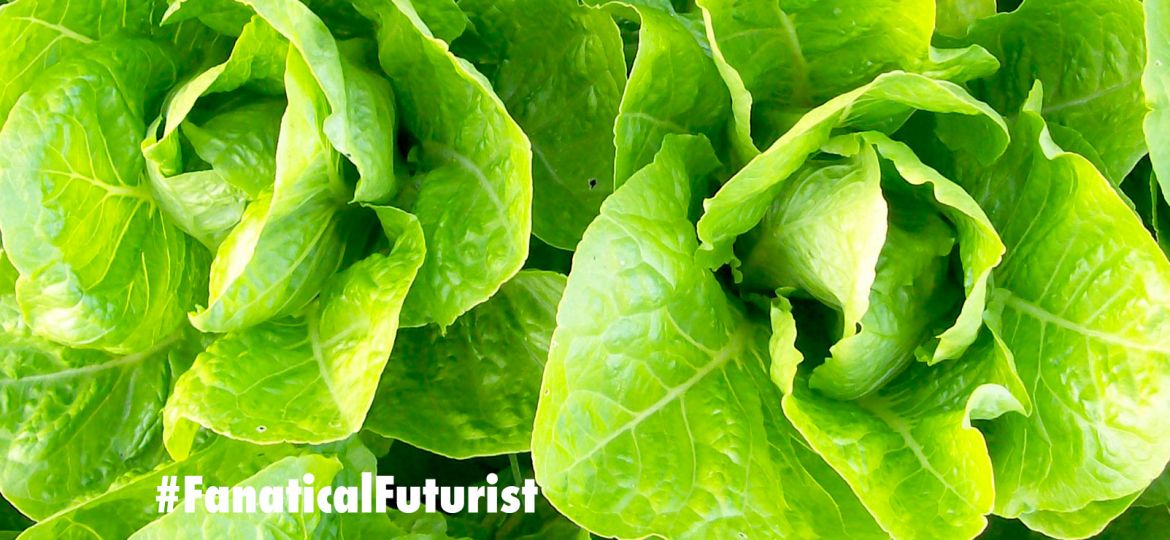
WHY THIS MATTERS IN BRIEF
The world’s population will grow by another 2 billion by 2050 and many think today’s agricultural systems won’t cope, as a consequence we need to embrace new forms of sustainable, high yield agriculture.
The agricultural industry is going through a revolution, everything from robotic automation to gene editing, and recently I spoke about a new LED lighting system that can triple crop yields, a technology that’s ideal for today’s modern vertical farms, but now a Silicon Valley agriculture start up is preparing to build more than 300 vertical farms across China thanks to a significant multi-million dollar investments from Amazon CEO Jeff Bezos, Alphabet executive chairman Eric Schmidt, and Softbank Group, and in time Amazon, who are on track to become the world’s first autonomous retailer, could use the same technology to disrupt agriculture and grocery retailers, like Walmart, in the US.
By entering the Chinese market, the startup, Plenty, hopes to tap into the country’s growing demand for organic foods, something that has recently been kicked into the limelight by a number of Chinese food safety scandals, the most tragic of which was in 2008 when six babies died and at least another 54,000 were made sick when tainted baby formula created a kidney disease outbreak. Now, propelled by a growing Chinese middle class with more buying power who are more willing to pay for “wholesome” foods, Plenty feels the time is right to venture into the Chinese market at scale.
The company plans to build its vertical farms in warehouses on the edges of major cities, at first growing plants such as herbs, kale and mustard greens, and much more, under LED lights using gravity fed water and, more importantly without the need for any chemicals such as herbicides or pesticides. However, while they can’t yet grow root vegetables in this way, because their first crops are going to be using “soil-free” agriculture techniques they’re hoping their next crops will include cucumbers and strawberries and that the range of fruits and vegetables they can produce will grow from there.
The company recently benefited from a massive $200 million investment round led by the Japanese telecom company SoftBank Group, which included money from Bezos Expeditions and Eric Schmidt’s Innovation Endeavors, and the company’s value proposition is based on the fact that these new agricultural models can help feed growing populations using less water, less resources and no chemicals while increasing yields, of organic certified foods no less, by at least eight fold, and because vertical farms can be built in cities, they can at worst reduce, and at best completely eliminate, having to transport food over long distances.
Plenty is building one such farm in spring this year just outside Seattle, Washington, and it’s expected to produce about 4.5 million pounds of greens per year, enough to feed more than 183,000 people using 80 percent less resources than a traditional farm.
The type of operation Plenty wants to bring to China could also fit in well with the Chinese government’s plans to revamp how it feeds its people, for example, earlier this month at a meeting about creating “Green zones” for growing food in major cities, Chinese agricultural minister Han Changfu said that he wants to change the way China approaches agriculture in the future.
“It is necessary to speed up the transformation of agriculture from yield-oriented to quality-oriented, raise the overall quality of agricultural products, promote the transformation and upgrading of agriculture,” he said in the statement.
















